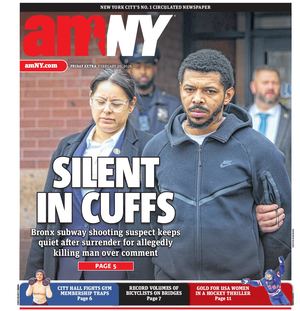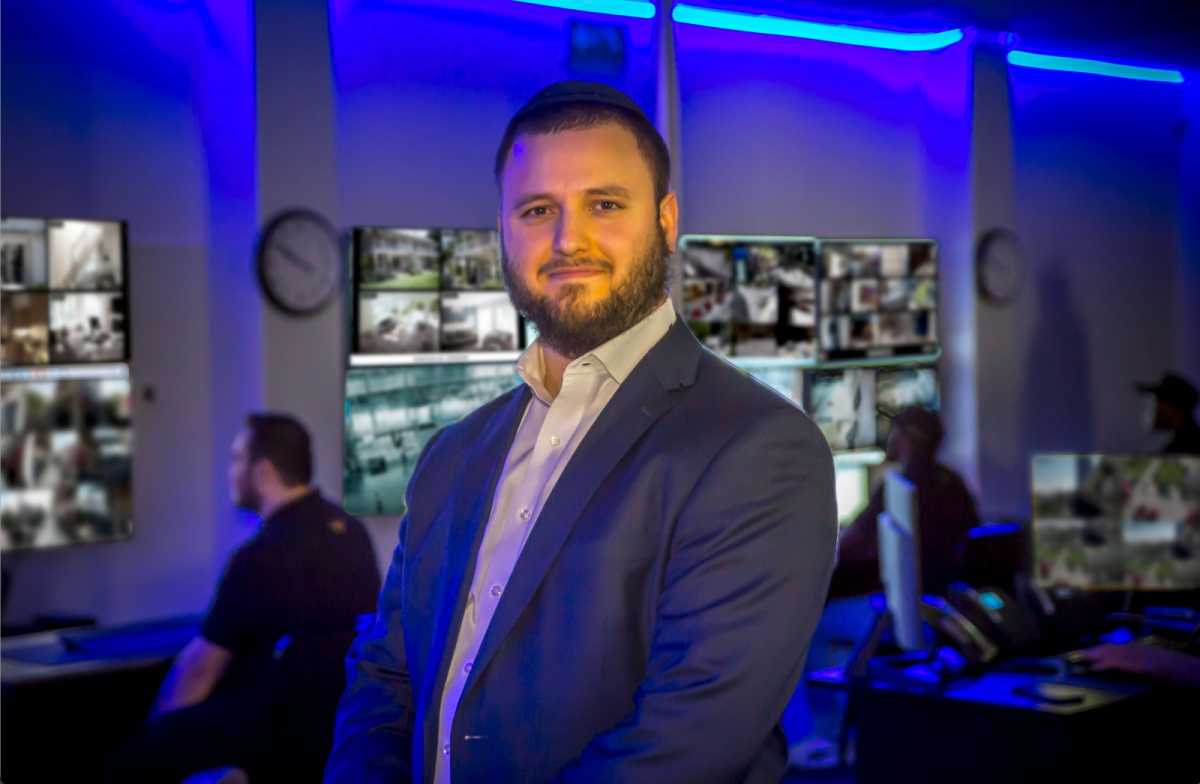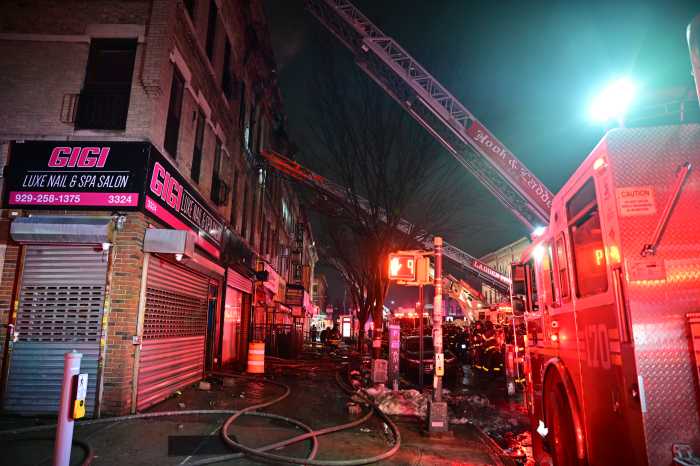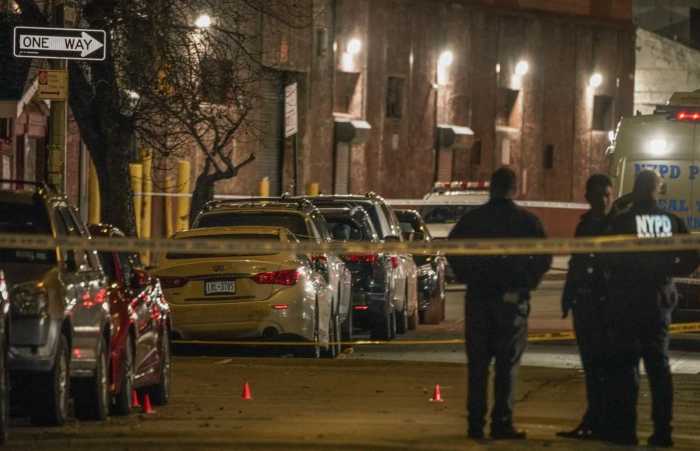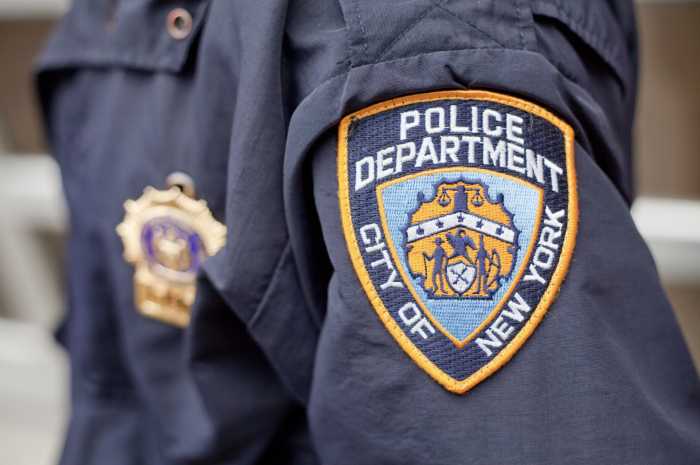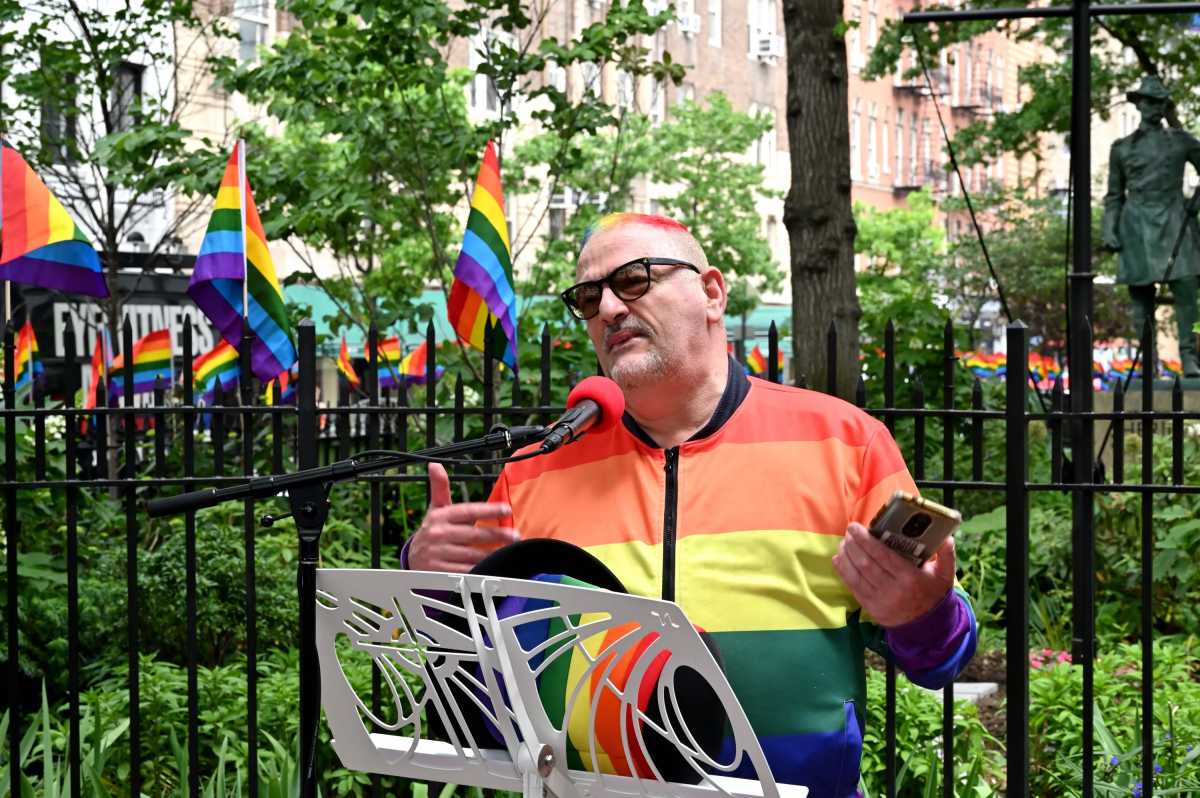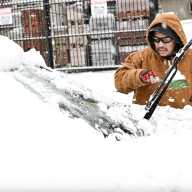In the face of rising antisemitic attacks and vandalism, one Brooklyn rabbi has launched a security startup company offering Jewish organizations around-the-clock surveillance and protection.
Rabbi Yossi Eliav, director of Chabad of Clinton Hill and Pratt, is the founder of US Virtual Guard — a Brooklyn-based startup that uses artificial intelligence and human monitoring to safeguard synagogues, schools, and other communal institutions.
US Virtual Guard operates with a hybrid model of machine learning and human oversight. Trained staff monitor live camera feeds in real time, while proprietary computer vision software flags unusual behavior or potential threats. For the dozens of institutions that have signed up so far, the company utilizes their current security cameras or helps them install a new system to connect them to the control room.
“It’s like a two-track system,” Rabbi Eliav told am NewYork. “The AI tech is reviewing footage, but there’s another department actually reviewing the live feeds constantly to make sure nothing is missed. We can’t take chances.”
The initiative comes as Jewish communities across the U.S. and beyond remain on high alert. According to FBI statistics, Jews were the target of nearly 60% of all religiously motivated hate crimes in the U.S. despite making up just 2% of the population.
Similarly, in NYC, 60% of reported hate crimes so far this year have targeted those of the Jewish faith, per NYPD data.
“Over the past year, dozens of rabbis from around the world have called me saying that their security systems are not equipped to deal with the threats they’re facing,” said Eliav. “Congregants, clergy and organizational leaders want to know that their community spaces are protected, and our solutions have been developed specifically for them.”
Eliav said the staff is not only trained in emergency protocols but is also familiar with Jewish customs, calendars, and rituals—a detail he considers essential for effective protection.
Ahead of major Jewish holidays like Passover, Eliav said, staff are trained to understand religious services, expected crowds, and schedules to better detect irregular activity.
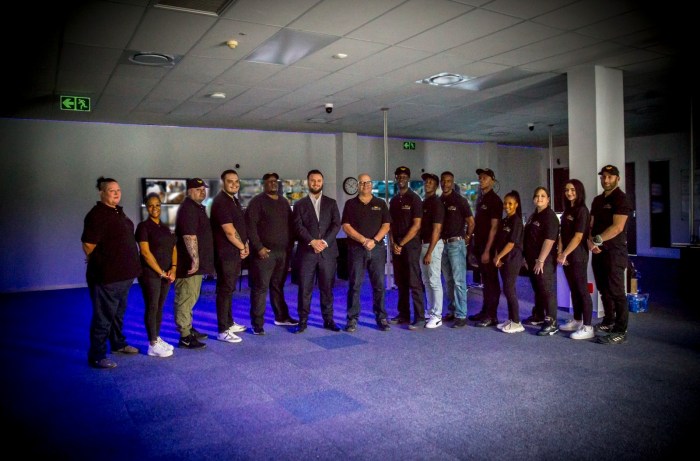
US Virtual Guard officially launched last month after a quiet beta period during which the company tested its technology with friends, family, and internal partners. Eliav says the company is now nearing almost one hundred sign-ups to the service, which is available nationwide but is so far concentrated in New York.
While rooted in synagogue safety, Eliav said the service also helps apartment buildings and small businesses, particularly in Brooklyn, where package theft and break-ins are common.
“We wanted everybody to feel safe,” he said. “We made it a goal to make it affordable and to make it something that everybody can do.”
He cited a recent example where US Virtual Guard picked up on someone taking photos of a synagogue from across the street. The footage was shared with the local leaders of that synagogue to assess whether it posed a legitimate threat. In that particular case, there were no further issues, but the team working within the control room will flag any kind of activity outside a client’s property and, depending on the threat level, will immediately contact law enforcement or listed community members.
Though Eliav said his “prayer is that we shouldn’t need it,” he remains committed to offering what he calls a “proactive solution” to a growing security need.
“Our system transforms existing security cameras into a proactive solution rather than a reactive tool,” he said. “We prevent incidents from happening instead of just responding to them.
